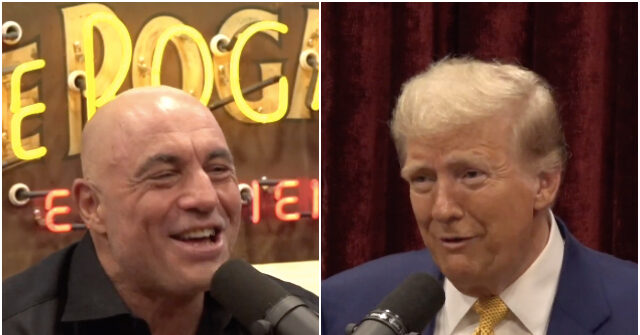In a recent podcast episode, Joe Rogan, known for his influence as a commentator and podcaster, discussed the implications of free speech in America, particularly in the context of celebrity endorsements of political figures. He revealed that many artists, musicians, and comedians have privately expressed gratitude towards him for supporting Donald Trump, fearing that public support for the former president could jeopardize their careers. Rogan highlighted a climate of fear that discourages individuals from expressing their opinions, particularly those that deviate from mainstream, predominantly leftist narratives. His endorsement of Trump, given just before the election, served as a bold move amidst this climate.
Rogan’s conversation with legal advisor Josh Dubin shed light on the growing concerns over free speech and its perceived erosion due to exertions from the radical left and the culture of cancelation. The podcaster emphasized that a significant number of people are hesitant to voice their thoughts due to potential repercussions, such as social ostracism or professional backlash. He conveyed the belief that many feel America is heading in a troubling direction when it comes to personal expression, blaming a perceived overreach in control of social media and public discourse.
During their dialogue, Rogan warned of the dangers associated with the current trajectory of free speech in society, correlating it to incidents happening in the UK where individuals have faced legal repercussions for their online statements. This, he argued, sets a dangerous precedent that could apply to any government, regardless of political affiliation, should free speech continue to be stifled. He pointed out that while the First Amendment is supposed to protect free expression, many citizens feel its sanctity is under threat, especially if certain political figures gain more influence.
Rogan articulated his belief that Trump’s campaign promises, especially around free speech, resonate with many who feel marginalized by prevailing cultural sentiments. He contended that the current discourse surrounding free speech is not just a right-wing or left-wing issue, but a fundamental aspect of America’s identity. The need for clearer boundaries on government involvement in censoring or influencing public speech was emphasized, showcasing Rogan’s commitment to advocating for a more open and free exchange of ideas.
In his conclusion, Rogan reaffirmed the significance of free speech as one of the cornerstones of American values. He stated unequivocally that maintaining this freedom is crucial for the country’s integrity and progress. Rogan’s willingness to host Trump late in his campaign not only highlighted his unflinching approach to discussing all political perspectives but also posed a challenge to other prominent figures who have shied away from similar engagements due to fear of backlash.
Despite his overtures to invite more diverse voices, including those from the Democratic Party like Kamala Harris, Rogan noted the barriers established by such figures, often leading to heightened tensions surrounding political discourse in media. Rogan’s comments underscore a broader dichotomy in today’s cultural landscape where the fear of cancellation looms large, leaving many to reconsider their positions and public statements in the face of societal pressures. By voicing these concerns, Rogan seeks to illuminate the pressing issues related to free expression and encourage individuals to reclaim their rights, even amidst a politically charged environment.

